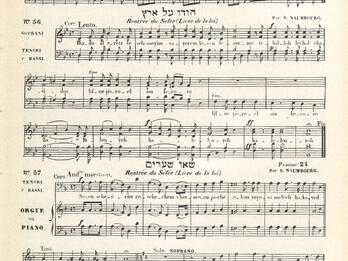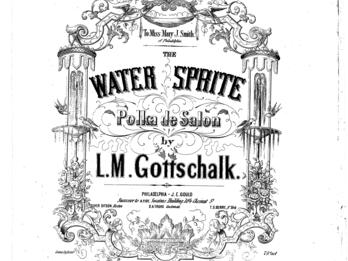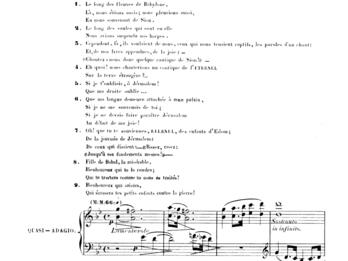Hallelujah: Eine Cantatine für 4 Männerstimmen mit begleitung einer obligaten orgel und des chores ad libitum
Giacomo Meyerbeer
1847
The manuscript is believed to be the earliest extant Reform Jewish liturgical composition. An early example of the work of Giacomo Meyerbeer, “Hallelujah” was probably prepared for use at a service at the Jewish Reformed Temple of Berlin, which met in the Meyerbeers’ home. Giacomo’s father, Juda Herz Beer (1769–1825), was an active member of the congregation. The words to the cantata are by Edward Kley, tutor to the Meyerbeer children and preacher at the temple.
Credits
Image provided courtesy of the Library of Congress, Music Division
Published in: The Posen Library of Jewish Culture and Civilization, vol. 6.
You may also like

Ancienne melodie de la synagogue

Seu Shearim (Lift Up Your Heads, O Gates)
Esther’s Triumph
Kerakh shel romi (City of Rome)

The Water Sprite—Polka

Super flumina Babylonis
Creator Bio
Giacomo Meyerbeer
A pathbreaking composer, Giacomo Meyerbeer surprised and delighted generations of opera fans in Europe and around the world. To the staid formula of live performances, he added sound effects, electric spotlights, and an erudite conception of history, making opera at once smarter and more spectacular. Meyerbeer was born Jacob Liebermann Beer, in Prussia, to a wealthy Jewish family. He studied piano and composition before finding success with the Paris Opera. Condemned by the antisemitic Wagner, Meyerbeer’s reputation suffered, though he is today credited with transforming his chosen medium, making opera more attractive to its audiences.
Related Guide
Music and Opera in Jewish Culture
One of the most striking changes in European Jewish culture toward the later eighteenth century was marked by the entry of Jews into art music, opera houses, and the stage.
You may also like

Ancienne melodie de la synagogue

Seu Shearim (Lift Up Your Heads, O Gates)
Esther’s Triumph
Kerakh shel romi (City of Rome)

The Water Sprite—Polka




